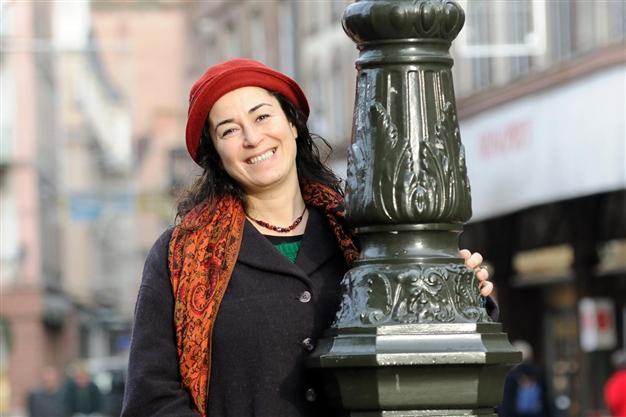Red notice issued for Turkish sociologist Pınar Selek
ISTANBUL – Doğan News Agency

Pınar Selek's Kafkaesque battle against the Turkish judicial system appears set to continue, after Interpol issued a red notice for the France-based sociologist. Hürriyet Photo
A red notice has been issued for sociologist Pınar Selek, who was sentenced to life in prison Jan. 24 for her role in an explosion at Istanbul's Spice Bazaar (Mısır Çarşısı) in central Istanbul in 1998, which left seven dead and wounded dozens more.
Interpol’s red notice is “the closest instrument to an international arrest warrant in use today.” Selek currently lives in the French city of Strasbourg and is pursuing her thesis at Strasbourg University. She may now face detention by French police and could be sent back to Turkey as part of the long-running legal battle that has seen her cleared of charges in the explosion on three separate occasions.
Reacting to the red notice, Selek said she was “resisting.” “I’m continuing to be who I am – ‘I’m resisting’ – I have nothing to say other than this,” she was quoted as saying by weekly newspaper Agos.
“I don’t know why they’re still bothering with me this much,” she reportedly told her father, Alp Selek, by phone after the announcement was made, daily BirGün reported.
Alp Selek emphasized that the case was not yet finished. “There is an attempt to make it seem like the case is over, Pınar’s been convicted and she’s gone on the run. However, Pınar is doing her doctorate in France,” he said, adding that his daughter’s legal team was still going to make its defense to the Supreme Court of Appeals and that the case had gone to the European Court of Human Rights (ECHR). “We will continue our battle.”
Pınar Selek also said it remained to be seen whether Interpol or France would act on the red notice.
The academic has undergone a number of legal tribulations since she was first apprehended in 1998 in the wake of the explosion, which the court most recently ruled to be a bomb even though several expert reports had concluded that the blast was caused by a gas leak. After more than a year in prison, she was released in December 2000 but was subsequently subjected to Kafkaesque-like judicial treatment, winning acquittals in the case on three separate occasions, only to be retried. In November 2012, a Turkish court ruled to overturn its previous acquittal, reopening proceedings against her before finally convicting her again in January.
In prison, Selek was allegedly subjected to heavy torture, during which she also refused to name the people she had interviewed during her sociological research on the Kurdish issue.
Given the strong and persistent doubts that the bazaar explosion was actually caused by a bomb, many have speculated that Selek was purposely selected for harsh judicial treatment due to her work on Kurds.
















